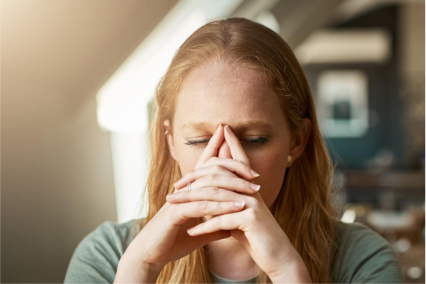How to Help People with Depression?

Helping people with depression can be hard, but small actions can make a big difference. Depression makes people feel sad, tired, or hopeless, and they may not want to do normal activities. Showing that you care, listening without judging, and being patient can help them feel less alone. Simple things like checking in, offering to spend time together, or helping with daily tasks can also be very supportive. Encouraging them to talk to a doctor, counselor, or other mental health professional is important. Remember, you cannot fix depression, but your kindness and support can help someone feel safer, understood, and less overwhelmed. Small steps matter every day.
Table of Contents
What You Need to Know About Helping People with Depression
Depression is a serious condition that makes people feel very sad, tired, or hopeless for a long time. It can affect how they sleep, eat, or enjoy daily activities. People with depression may feel alone or think nobody understands them. It is important to know that depression is not a choice and cannot be fixed by telling someone to “cheer up.” Being kind, patient, and understanding is the first step in helping someone who is struggling.
You can help by listening without judging and showing that you care. Small actions, like checking in often, spending time together, or helping with chores, can make a big difference. Encouraging them to do healthy habits, such as eating well, getting exercise, or keeping a routine, can also support their mental health. Let them know that professional help is available and safe. Talking to a doctor, counselor, or therapist is important for recovery.
Remember, you cannot make someone feel better instantly, but your support matters. Being present, patient, and consistent can help them feel less alone and more understood. Depression is treatable, and people can get better with help. For more information and resources, see the National Institute of Mental Health (NIMH)
Signs You May Need to Help Someone with Depression
- Feelings of hopelessness or worthlessness – Expressing guilt, self-blame, or that life has no meaning.
- Persistent sadness or low mood – They feel down most of the day, nearly every day.
- Loss of interest in activities – Hobbies or things they once enjoyed no longer excite them.
- Changes in sleep or appetite – Sleeping too much or too little, or eating more or less than usual.
- Fatigue or low energy – They feel tired all the time and struggle with simple tasks.
- Difficulty concentrating – Trouble focusing at work, school, or during conversations.
- Social withdrawal – Pulling away from friends, family, or social activities.

Why Choose We Level Up Palm Beach for Supporting People with Depression?
We Level Up Palm Beach helps people who are struggling with depression in a safe and caring way. Depression can make life feel very hard, and having support from trained professionals can make a big difference. At We Level Up Palm Beach, staff listen with kindness and do not judge. They help people understand their feelings and learn ways to cope with sadness, stress, and low energy.
The center offers different programs to fit each person’s needs. They provide therapy, counseling, and support groups where people can talk and feel understood. Staff also teach healthy habits, like good sleep, exercise, and daily routines, which can help improve mood over time. Family and friends can learn ways to support their loved ones, too.
Choosing We Level Up Palm Beach means getting help in a safe, welcoming place. People with depression can feel less alone, gain tools to manage their feelings, and take steps toward feeling better. Support is available, and recovery is possible.
What to Expect When Helping Someone with Depression?
Helping someone with depression can be challenging, but knowing what to expect can make it easier. People with depression may feel sad, tired, or hopeless most of the time. They might lose interest in activities, have trouble sleeping or eating, and seem withdrawn. It is normal for them to have good days and bad days. Your support can help them feel less alone, even if progress is slow.
When you offer help, listening without judging is very important. Simple actions, like checking in regularly, spending time together, or helping with small tasks, can make a big difference. Encourage healthy habits like getting rest, exercising, or keeping a routine. It is also important to support them in seeking professional help, such as talking to a doctor, counselor, or therapist.
Remember, you cannot fix depression alone. Helping someone may take patience and time, and that is okay. Your presence, understanding, and kindness are valuable. Over time, your support can help them feel safer, understood, and more ready to take steps toward recovery. Small acts of care matter every day. For more information, see the National Institute on Drug Abuse (NIDA): https://nida.nih.gov.
Benefits of Helping People with Depression
- Reduces feelings of isolation – Your support helps them feel less alone.
- Encourages emotional healing – Listening and understanding can improve their mood over time.
- Promotes healthy habits – Guidance on routines, sleep, and exercise supports mental health.
- Builds stronger relationships – Being present strengthens trust and connection.
- Supports recovery and professional care – Encouragement can help them seek therapy or medical treatment.
How to Get Started Helping Someone with Depression
Helping someone with depression can feel overwhelming at first, but taking small, thoughtful steps can make a big difference. Start by learning the signs of depression, listening without judgment, and offering consistent support. Encouraging professional help, while being patient and understanding, sets the foundation for recovery.
At We Level Up Palm Beach, getting help is easy. Call (561) 944-7447 or email verifyadmissions@welevelup.com to connect with our caring team. Visit us at 1017 N Olive Ave, West Palm Beach, FL 33401 to meet staff, tour the center, and learn about personalized care. Our team will guide you through insurance, schedule therapy sessions, and explain every step of your treatment plan. Whether you’re seeking help for yourself or supporting a loved one with depression, we provide compassionate, step-by-step guidance.
FAQs About Helping People with Depression
1. What is the best way to help someone with depression?
Listen carefully and be kind. Encourage them to talk to a doctor or counselor. Offer support and help them get therapy or local resources.
2. Can family members join treatment?
Yes. Families learn how to help someone with depression. They can support the patient at home safely and positively.
3. How soon should someone get help?
If sadness or worry lasts more than two weeks, seek care. Early help improves chances of recovery and safety.
4. Does We Level Up Palm Beach take insurance?
Yes. The center works with many insurance plans. Staff helps families with coverage and paperwork.
5. What therapy does the center provide?
The center offers individual therapy, group sessions, family counseling, and life skills programs. Patients learn coping skills and emotional support.
6. Are there local depression help resources available?
Yes. Staff connects patients to mental health support Florida programs, and community groups for long-term care.
7. How can I support someone at home?
You can help by listening, checking in, and encouraging healthy routines. Simple actions like walking together, talking openly, or reminding them to take medications and attend appointments can make a big difference.





